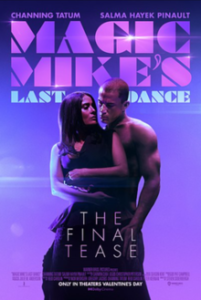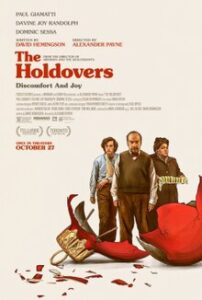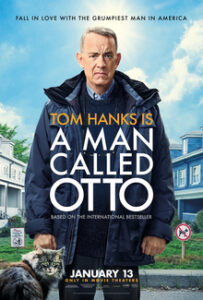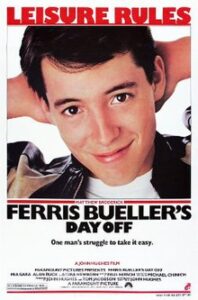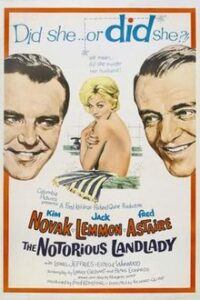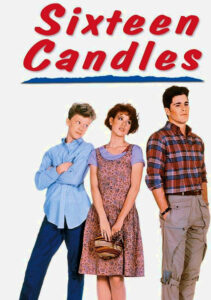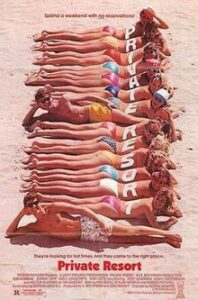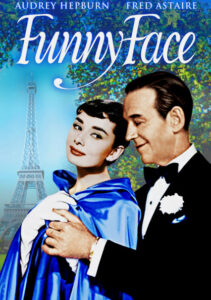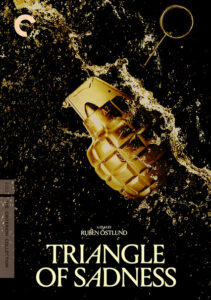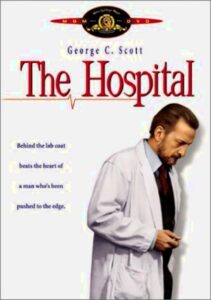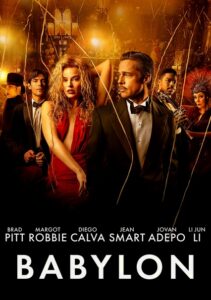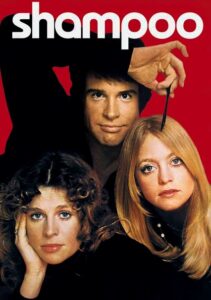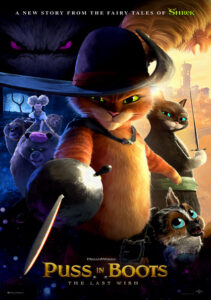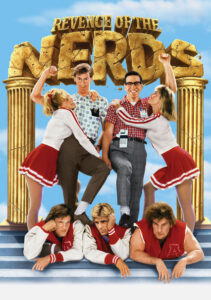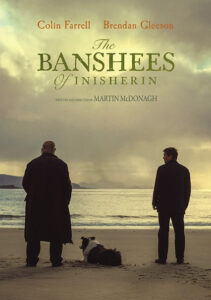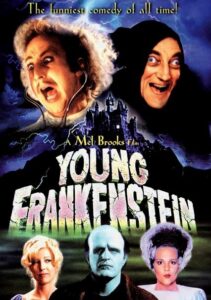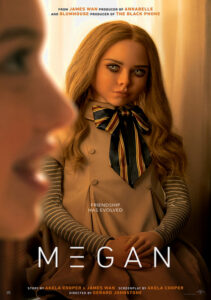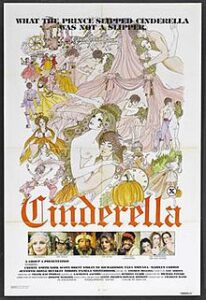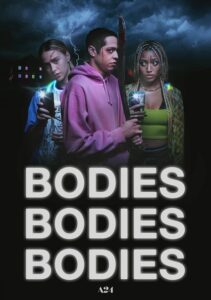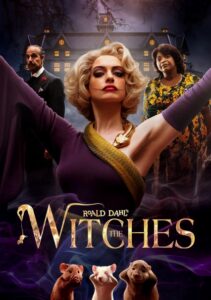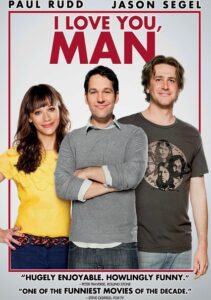Magic Mike’s Last Dance-2023
Director Steven Soderbergh
Starring Channing Tatum, Salma Hayek
Scott’s Review #1,415
Reviewed January 14, 2024
Grade: C-
Magic Mike’s Last Dance (2023) is the third and final installment in the Magic Mike trilogy, following the successful Magic Mike (2012) and the dismal Magic Mike XXL (2015).
Billed as ‘The Final Tease’ the sub-title of the last release is rather appropriate since there is nary a bare bum to be found much less any other nudity. Since the film is about the male stripper industry there is laughingly more female flesh than male.
While there are a couple of titillating sequences containing thrusting and gyrating the tone is watered down and extremely safe. Nothing warrants the R-rating that Magic Mike’s Last Dance received.
After my horrific review of Magic Mike XXL in which I awarded it a solid ‘F’ I will keep my manners in check and be mindful that Magic Mike’s Last Dance is intended to entertain on a late night.
I have rated it a generous ‘C-‘.
The film is pretty bad with no character development whatsoever, poorly written dialogue, and little chemistry between stars Channing Tatum and Salma Hayek. Mike is the only likable principal character in the bunch.
I’m very surprised that respected director Steven Soderbergh who received an Oscar nomination in 2000 for the terrific Traffic would have anything to do with this film.
His style is unnoticeable except for a setting of wealth and a brief and mediocre mention of capitalism and the rich manipulating the poor which the director sometimes includes in his films.
“Magic” Mike Lane (Tatum) has suffered a bad business deal that has left him bartending at parties in Florida. He meets a rich businesswoman, Max, played by Salma Hayek, who pays him for one of his legendary dances.
Smitten, Max immediately offers him a job directing a show at a famous theatre in London. The show will include a smoldering feast of hot new dancers that Mike will choreograph.
The storyline, admittedly secondary in this type of film, has so many holes I wouldn’t know where to start, but the weakest point is expecting the audience to buy Mike and Max as having fallen in love after one dance.
Romance is a hard-swallow made worse by Max’s demanding personality and insecurities over her ex-husband. She’s a bit of a tyrant made more noticeable by Mike’s even-keeled nature.
While not worldly, Mike is kind and I desired to see him paired with nearly any other character other than Max.
Tatum is a much better actor than most assume based on his pinup beefcake good looks. Has anyone seen him in Foxcatcher (2015)? Sadly, the actor is given weak material to work with that does nothing to challenge him.
Furthermore, we are cheated and only see him twice in his underwear. Some stripper.
Supporting characters like Max’s brooding daughter, Zadie, and opinionated manservant, Victor, are stock and given uneven dialogue to work with. They are presumably added for comic moments that never come.
To be fair, the film is set in London in addition to Miami, and a few decent exterior shots of both locales are added which helps the film.
A ridiculous Zoom call cameo sequence meant to include Mike’s ‘bros’ from the other films (Matt Bomer, Adam Rodriguez, and Joe Manganiello) is a treat but has an ill-effect since that’s all we get from the handsome fellas.
Magic Mike’s Last Dance would have been saved if a scantily clad reunion dance had commenced with the ‘bros’ but sadly none was to be found.
The first film, Magic Mike (2012) is the only one of the three worth spending any time on. Pure juicy entertainment mixed with polished machismo is what was offered and Magic Mike’s Last Dance (2023) loses the ‘magic’ and instead offers a shriveled pickle of what used to be a commanding phallic symbol.
